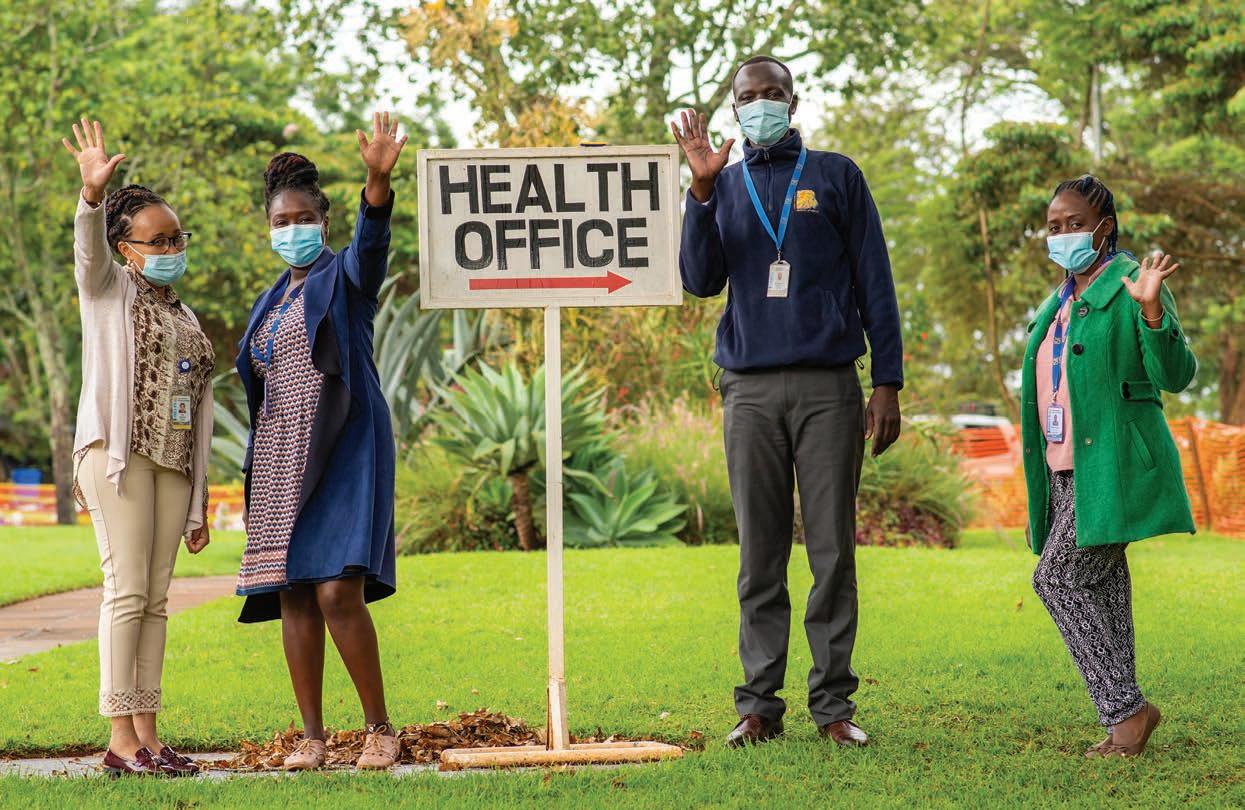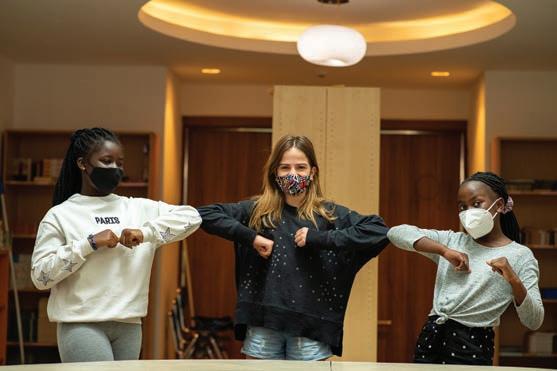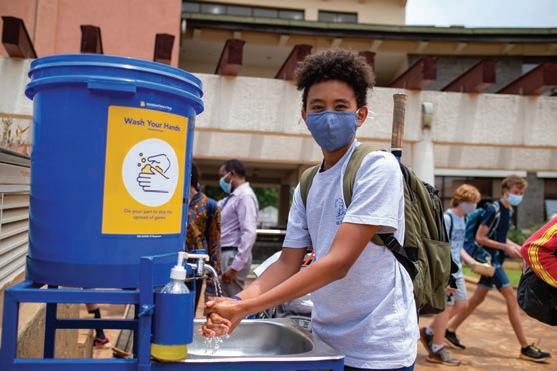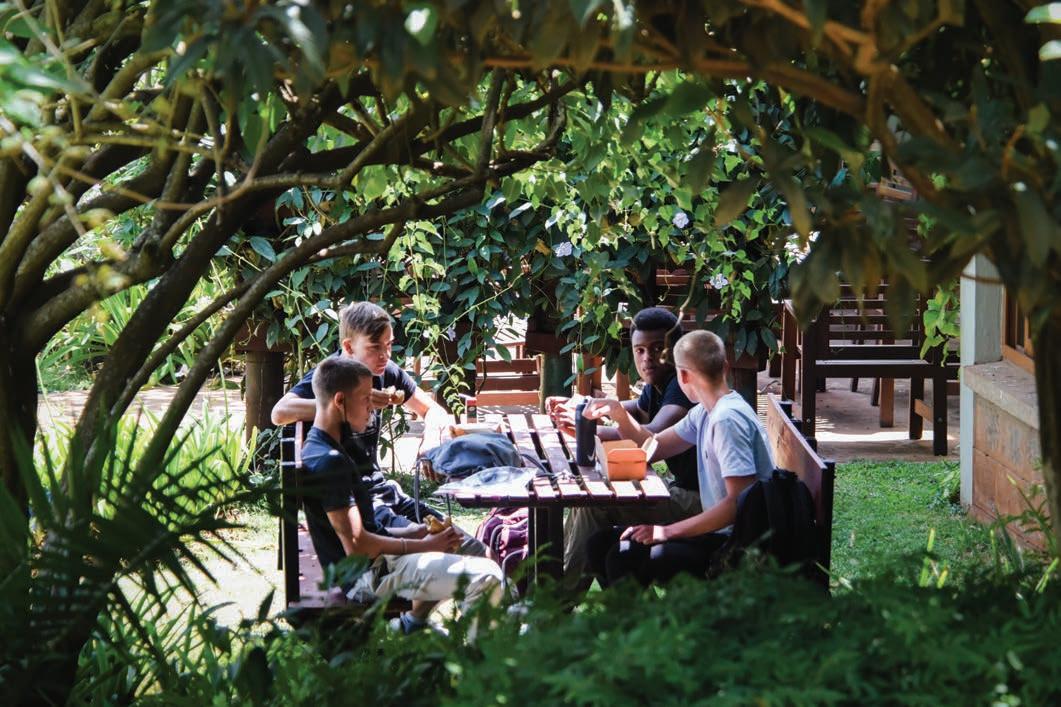
2 minute read
Health Report
Children all over the world have endured difficult times since COVID-19 began in 2020. Here in Kenya, school closures interrupted learning for over 17 million children and increased the risk of violence, child labor, and child marriage. Their mental well-being has also been affected. After these challenges, it was encouraging to see the safe return of children to schools in 2021. These were huge achievements in the health and education sectors that we should celebrate.


On December 15, 2021, the Cabinet Minister for Health confirmed we had detected our first cases of the Omicron Coronavirus Variant in the country. The increase in cases infected with the variant with no recent travel history suggested ongoing community transmission of this variant. Kenya was battling a wave of COVID-19 infections greater than any since the coronavirus pandemic began in 2020. The positivity rate jumped from 6.5% in November to almost 30%.
All staff members were asked to vigilantly support and carry out ISK’s COVID-19 procedures and guidelines, to mitigate the spread of the disease both on and off-campus. This included cleaning surfaces and ensuring that we were socially distanced (especially at lunchtime), and wearing our masks. On December 24, 2021, the MoH released new information regarding COVID-19 booster vaccinations for people who had completed the primary COVID-19 vaccination series. In collaboration with Westlands Sub-county Health Team, ISK planned to set up another outreach service on January 14, 2022 at the ISK campus for ISK staff (and family members) to receive booster vaccinations.

On January 21, 2022, we were proud to announce that we were able to administer 471 vaccines, 341 of which were given to ISK faculty and staff. Combined with boosters elsewhere, we were up to 77% of ISK employees having had the boosters and 99% having received their full vaccines.
On March 12, 2022, Kenya marked exactly two years since the first case of Coronavirus was detected and reported. Kenya’s positivity rate has remained below 5% over the last few months, while the proportion of fully vaccinated adults in Kenya stands at 30.4%. At the same time, MoH announced revised COVID guidelines based on guidance from the WHO and CDC on public health considerations and the evolving epidemiological situation globally. This saw, among other things, the mandatory wearing of facemasks in open public spaces lifted, quarantine stopped, isolation days for confirmed cases reduced to 5 days (from 10), and full resumption of sports activities in learning institutions. So as we applaud the resilience and determination of our children who are back in school and learning, we should not lose sight of where we have come from and other longerterm objectives. All our efforts would not have been possible without the support of the CRT and other pertinent external stakeholders like MoH and CDC within the ISK family. We also thank the ISK community for their amazing work in enabling our students to feel safe and continue to learn as we keep navigating each change in the effect of the virus on our local and global community.
With Gratitude,








